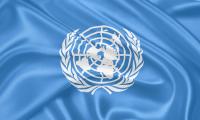Implementing the United Nations Guiding Principles on Business and Human Rights in Sub-Saharan Africa

This project, implemented in cooperation with the Centre for Research on Multinational Corporations (SOMO), civil society and NHRI partners in Kenya and Tanzania will strengthen civil society’s capacity to influence business and human rights in Tanzania and Kenya. The project also tried to strengthen the capacity to promote the implementation of the UN Guiding Principles on Business and Human Rights in the target countries and the East African sub-region.
SOMO focused on strengthening access to remedy by building capacity among national and community-level civil society organisations to use business and human rights grievance mechanisms to claim their rights and hold duty-bearers accountable in relation to abuses linked to the extractive sector and other land-intensive industries.
The Danish Institute for Human Rights (DIHR) supported local partners in establishing and sustaining multi-stakeholder dialogues on business and human rights in support of the development of National Action Plans (NAPs), and of reform proposals related to the extractive sector and other land-intensive industries in Kenya and Tanzania.
At sub-regional level, a workshop was held to strengthen local actors’ capacity to address common challenges through peer learning and activating regional human rights mechanisms. A special focus on the impacts of the extractive sector and other land-intensive industries on vulnerable and marginalised groups including women, indigenous peoples and children was integrated throughout project activities.
The difference we make
In June 2014, the DIHR and the International Corporate Accountability Roundtable (ICAR) published the National Action Plans Toolkit, which gives guidance for the development, implementation, and review of state commitments to business and human rights frameworks. Since then, the DIHR has supported local partners in various countries around the world in using the toolkit.
In Kenya, the government committed itself to a National Action Plan on Business and Human Rights, and the Department of Justice has asked the Danish Institute for Human Rights (DIHR) and the Kenya Human Rights Commission (KHRC) to produce a baseline assessment. Through this project, DIHR will continue to support the Kenyan NHRI and civil society in facilitating multi-stakeholder dialogue, ensuring a transparent and participatory NAP process.
In Tanzania, the DIHR built the capacity of the National Human Rights Institution as well as leading civil society organisations on business and human rights issues in 2015. Through this project, the DIHR supported the local partner organisations in the development of a fact base for a National Action Plan, and support them in their efforts to anchor the process within a government institution.
Project activities
Workshop in Dar Es Salaam
In April 2018, the Institute co-organized a workshop in Dar Es Salaam (Tanzania) - bringing together 56 participants from a variarity of institutions from six countries in Eastern and Southern Africa (Kenya, Mozambique, South Africa, Tanzania, Uganda and Zambia) - to share experiences and learning on addressing adverse impacts of business activities on communities and workers.
The main conclusion of the workshop was that many communities continue to experience negative impacts of business activities across all sectors. Remedies, however, remain rare for several factors including lack of information on rights, responsibilities of business, and on available mechanisms, ineffective judicial systems, lack of independence of operational-level grievance mechanisms, lack of enforcement of decisions and so forth. But participants gained renewed energy and insights to address these challenges on the road ahead.
The outcomes of the workshop are summarized in the attached report:
Partners
Funding partner:
- US Department of State, Department of Democracy, Human Rights and Labour
Project partners:
- Centre for Research on Multinational Corporations (SOMO), Netherlands
- Kenya National Commission on Human Rights (KNCHR), Kenya
- Kenya Human Rights Commission, Kenya
- Commission on Human Rights and Good Governance (CHRAGG), Tanzania
- Human Rights and Business Tanzania, Tanzania
Start year: 2016
End year: 2018
